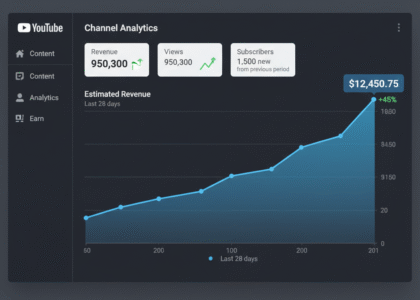When it comes to mastering your finances and making smart investment decisions, knowledge is power. The top investment books of 2025 offer timeless advice and practical strategies that every investor—whether a newbie or a seasoned pro—can benefit from.
In this guide, we’ll highlight some of the best investment books that have stood the test of time, along with a few modern classics perfect for navigating today’s financial landscape.
Why Read Top investment books?

Books provide deep, well-researched insights that online articles and quick guides often miss. By diving into these resources, you can:
- Build a solid foundation in investing principles.
- Avoid common investment mistakes.
- Gain confidence to create and manage your portfolio.
Now, let’s explore the top picks!
Top Investment Books to Read in 2025

1. “The Intelligent Investor” by Benjamin Graham

Why It’s a Classic:
First published in 1949, this book is often called the “Bible of Investing.” Benjamin Graham, the father of value investing, teaches readers how to invest for the long term while minimizing risks.
- Best For: Beginner and intermediate investors.
- Key Lessons:
- Focus on intrinsic value when evaluating stocks.
- Stick to a disciplined investment strategy.
Internal Link: Check out our guide on value investing basics.
2. “Rich Dad Poor Dad” by Robert Kiyosaki
Why It’s Popular:
This book isn’t just about investing in stocks; it’s about understanding money and building wealth. Kiyosaki’s storytelling makes complex financial concepts easy to understand.
- Best For: Anyone new to personal finance and investing.
- Key Lessons:
- The rich focus on acquiring assets, not liabilities.
- Financial education is the key to success.
3. “A Random Walk Down Wall Street” by Burton G. Malkiel

Why It’s Relevant:
If you’re looking to understand the efficient market hypothesis and the benefits of index funds, this book is for you. Malkiel makes a strong case for passive investing.
- Best For: Index fund enthusiasts.
- Key Lessons:
- Market timing rarely works; stay invested for the long haul.
- Diversification is crucial for minimizing risk.
4. “The Little Book of Common Sense Investing” by John C. Bogle
Why It’s Essential:
Written by the founder of Vanguard, this book simplifies the process of investing in low-cost index funds, a proven method for long-term wealth building.
- Best For: Investors seeking simple, effective strategies.
- Key Lessons:
- Keep investment costs low.
- Focus on the big picture, not short-term fluctuations.
5. “One Up on Wall Street” by Peter Lynch Top investment books


Why It’s Insightful:
Ray Dalio, founder of the world’s largest hedge fund, shares his unique approach to decision-making and investing.
- Best For: Advanced investors and professionals.
- Key Lessons:
- Use data and principles to guide investment decisions.
- Consistency and discipline are key to success.
7. “Thinking, Fast and Slow” by Daniel Kahneman
Why It’s Valuable:
While not strictly about investing, this book explores how cognitive biases affect decision-making—an essential read for understanding market psychology.
- Best For: Investors looking to improve their mental game.
- Key Lessons:
- Beware of emotional decision-making.
- Analytical thinking often trumps intuition in investing.
How to Apply Lessons from Investment Books
1. Start Small with Top investment books
Don’t overwhelm yourself by trying to implement every strategy at once. Begin with one or two ideas from the books you read.
2. Practice Consistency Top investment books
Many of the top investment books emphasize the importance of staying disciplined and consistent in your approach.
3. Keep Learning Top investment books


Investing is an ongoing journey. Make it a habit to read one book each year to keep improving your skills.
Internal and External Resources for Financial Growth
- Internal Link: Explore our guide on investing basics for actionable tips.
- External Link: Visit Investopedia for in-depth financial definitions and advice.
FAQs
1. What are the best investment books for beginners?
“The Intelligent Investor” by Benjamin Graham and “Rich Dad Poor Dad” by Robert Kiyosaki are excellent starting points.
2. Are index funds covered in these books?
Yes, books like “A Random Walk Down Wall Street” and “The Little Book of Common Sense Investing” focus heavily on index funds.
3. How often should I read investing books?
Reading one book per year is a great way to stay informed and improve your skills.
4. Can I learn to invest without a financial advisor?
Absolutely! Many of these books are designed to help you invest independently.
5. Are older books still relevant in 2025?
Yes, many older books contain timeless principles that remain applicable today.
Conclusion
The top investment books of 2025 are more than just great reads—they’re tools to help you take control of your financial future. Whether you’re new to investing or looking to refine your strategies, these books can provide the knowledge and confidence you need to succeed.
Discover more tips on achieving financial freedom! Explore GetCashVibe today and take control of your finances.






